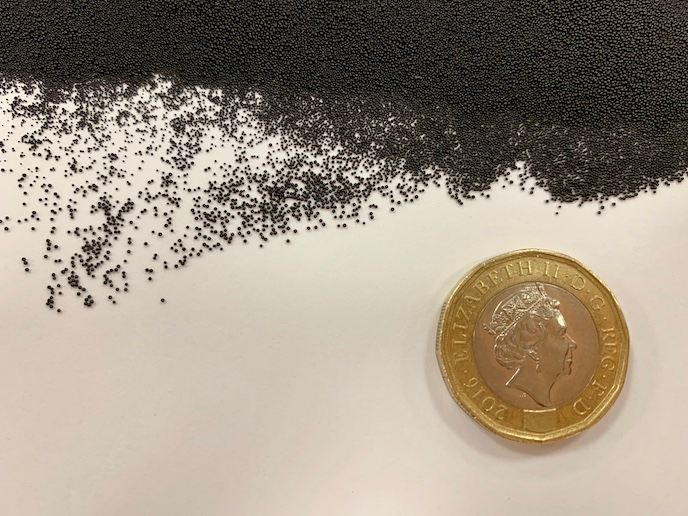Carbon crumbs soak up toxins in the body
Chronic liver disease is increasing at an alarming rate across Europe, due to rising levels of obesity, alcohol use and an ageing population. The CARBALIVE project is developing a treatment targeted at patients with cirrhosis, which has a 50 % fatality rate over 5 years. Currently there are only a limited number of therapies available. These include long-term use of antibiotics, which are poorly absorbed and can contribute to antibiotic resistance. In severe cases, a liver transplant is needed, but the waiting list can take years. The crux of the problem is a decline in liver function. When the liver is damaged by injury – from alcohol, viral infection or autoimmune disease – its capacity to deal with toxins that leach out of the gut is reduced. CARBALIVE, an EU and industry-funded project, aims to develop a safe, tolerable, relatively cheap treatment that can mop up these toxins and reduce complications associated with the condition. “It is essentially modified carbon, charcoal, which we have created to have the kind of holes that capture detrimental substances in the gut,” says Rajiv Jalan, professor of hepatology at University College London and project coordinator of CARBALIVE. The medicine, known as Yaq-001, comes as a sachet of tiny black granules which are swallowed with a glass of water at night. These absorb toxins in the gut, preventing the growth of pathogenic bacteria. This helps to reduce the gut inflammation which allows these toxins to leach into the body. The beneficial molecules from food and medicines are not taken up by the granules if the sachets are taken at night. “The charcoal is not absorbed, nothing enters your body. You eat it and poo it out. So it’s likely to be completely safe,” says Jalan. As well as treating those with cirrhosis, patients with fatty liver disease could be treated pre-emptively with Yaq-001 to prevent the development of cirrhosis. Jalan estimates the treatment could reach patients in as soon as 2 or 3 years. “The liver is a fascinating organ,” says Jalan. “It hides away, it’s not very attractive-looking, but it is a central regulator of almost every function in the body. When the liver fails, the whole body fails.” The company developing the treatment, Yaqrit, was spun out of University College London in 2013. Yaqrit is the Sanskrit word for liver. Jalan, who is Indian, says this name brings him back to his roots. Worldwide, more than 650 million people live with chronic liver disease, and cirrhosis kills 1 million people every year. The disease exerts a global cost of EUR 15.8 billion annually. “The grant has given us a huge boost in getting a carbon manufacturing plant to produce the material,” Jalan adds. “I’m hoping that Yaqrit will be successful in raising enough money to bring this product to the market.”
Keywords
CARBALIVE, liver, cirrhosis, carbon, chronic, nano, toxin, gut







